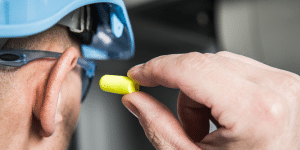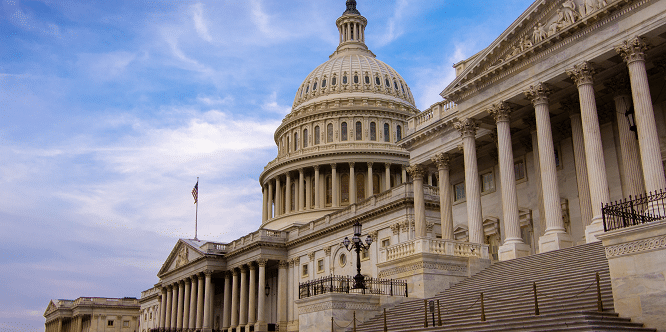This information is provided for educational purposes only. The reader retains full responsibility for the use of the information contained herein.
It’s hard to believe but 2023 isn’t even halfway over and already we’ve seen major changes impacting workplace drug testing on both the state and federal levels.
Specifically, Kentucky, Delaware, Minnesota, Washington, and the federal Department of Transportation (DOT) have all announced changes that are either already effective or will be soon, many pertaining to cannabis. This article will give a brief overview of each of the state law-related changes.
Jump Ahead
Delaware Legalizes Recreational Cannabis
April 2023 brought about the legalization of recreational cannabis in Delaware via House Bill 1 (HB 1) and House Bill 2 (HB 2). Upon passage, adult-use cannabis became immediately available, though the state has yet to establish dispensaries, retail regulations, and more.
Neither HB 1 nor HB 2 provides strict guidelines for employers pertaining to cannabis use in the workplace. Only HB 2 mentions employers in any capacity, stating that it is not intended to impact or impose any requirements or restrictions on employers regarding terms or conditions of employment. This includes but is not limited to, workplace accommodations, policies, or discipline. An employer who occupies, owns, or controls a property can prohibit or regulate the possession, consumption, use, transfer, distribution, sale, transportation, or growth of cannabis on the property.
HB 2 will not take effect until such a time as either the funds required to implement the bill have been appropriated and published in the Register of Regulations or the bill is enacted.
Kentucky Legalizes Medical Cannabis
In early 2023 Kentucky passed Senate Bill 47 (SB 47) into law, legalizing medical cannabis in the state for certain serious health conditions. The program, as passed, is set to launch by January 2025.
SB 47 does not require employers to permit or accommodate the use, consumption, possession, transfer, transportation, distribution, sale, or growth of medical cannabis in the workplace. Generally, employers can:
- Implement policies restricting the use of medical cannabis.
- Implement policies restricting or prohibiting the use of equipment, machinery, or power tools by a registered medical cannabis patient if the employer believes that the use of such equipment would pose an unreasonable safety risk.
- Contractually prohibit the use of medical cannabis by employees.
- Prohibit the use, consumption, transfer, display, transportation, sale, or growth of medical cannabis on work property.
- Establish and enforce a drug testing policy, drug-free workplace policy, and/or zero-tolerance drug policy.
Additionally, medical cannabis patients in the state are not to be considered under the influence simply because of the presence of tetrahydrocannabinol metabolites. “Good faith” impairment determinations by an employer include a behavioural assessment of impairment followed by the secondary step of testing for cannabis via an established method. Full details are provided in the law.
Minnesota Legalizes Recreational Cannabis
HF 100 passed in May 2023, legalizing recreational cannabis for adults aged 21 and older in the state of Minnesota. Limited possession will become legal as of August 1, 2023, with recreational sales to follow. Many parts of HF 100 are effective as of March 1, 2025. HF 100 includes certain regulatory updates to existing medical cannabis provisions as well as to the state mandatory drug and alcohol testing law.
HF 100 (generally) prohibits employers from:
- Refusing to hire an applicant because they use lawful consumable products off the premises of the employer and during non-working hours.
- Disciplining or discharging an individual because they use lawful consumable products off the premises of the employer and during non-working hours.
- Requesting/requiring applicants to be tested for cannabis solely for the purpose of determining the presence/absence of cannabis as a condition of employment unless required to do so by state or federal law OR refuse to hire an applicant because they returned a positive test result indicating the presence of cannabis unless required to do so by state or federal law.
- Requiring/requesting an applicant/employee to undergo cannabis testing on an arbitrary or capricious basis.
Employers can (generally) discipline, discharge, or take adverse employment action against an individual for the use, possession, impairment, sale or transfer of cannabis while working, on the employer’s premises, or operating the employer’s vehicle, machinery, or equipment if: as a result of consumption, the individual does not possess clearness of intellect and control of self; return a cannabis-positive confirmatory test; meet conditions provided in the employer’s written policy that meets the minimum information required by state law; are authorized/required to do so under state law; or if not doing so would cause the employer to lose a monetary or licensing-related benefit under federal law or regulation. In situations where cannabis testing can occur, said testing must comply with the general state drug and alcohol testing law.
HF 100 stipulates a number of positions for which these cannabis testing restrictions do not apply. Impacted employers should review the law carefully to see which positions are not impacted by the passage of HF 100.
Washington Limits Pre-employment Cannabis Testing
Senate Bill 5123 (SB 5123) passed in May 2023, limiting an employer’s ability to pre-employment test for cannabis and/or act based on an applicant’s positive test results. Employers are required to comply by January 1, 2024.
The bill begins by stating:
“Many tests for cannabis show only the presence of nonpsychoactive cannabis metabolites from past cannabis use…that have no correlation to an applicant’s future job performance…The legislature intends to prevent restricting job opportunities based on an applicant’s past use of cannabis.”
SB 5123 provides no detailed definition for what constitutes a “nonpsychoactive metabolite.”
As passed, the law prohibits employers from discriminating against an applicant if discrimination is based on an individual’s use of cannabis off-the-job and away from the workplace, or a required drug test indicating the presence of “nonpsychoactive cannabis metabolites” in the hair, blood, urine, or bodily fluid of the applicant.
Employers can still:
- Base initial hiring decisions on “scientifically valid drug screening conducted through methods that do not screen for nonpsychoactive cannabis metabolites.”
- Maintain a drug- and alcohol-free workplace.
- Meet any federal law or regulatory requirements.
- Continue testing as normal for all situations outside of pre-employment.
- Test applicants for a “spectrum” of controlled substances that include cannabis, as long as said cannabis results are not provided to the employer and the tests adhere to the entirety of the law as stated (including provisions pertaining to tests only looking for nonpsychoactive cannabis metabolites).
SB 5123 includes a number of safety-sensitive carve-outs to which the law does not apply. See law for full details.
Conclusion
Already, employers nationwide are impacted by these and other changes that have occurred in 2023. Keep a close eye on legislation throughout the rest of the year, as it’s likely that more legislation impacting employers will pass before 2024 arrives. Impacted employers should review their company policies and applicable laws/regulations carefully to ensure that they are ready prior to these changes becoming effective.
© 2023 SureHire Inc – No portion of this article may be reproduced, retransmitted, posted on a website, or used in any manner without the written consent of SureHire Inc. When permission is granted to reproduce this article in any way, full attribution to the author and copyright holder is required.
You May Also Be Interested In…
- Do You Have Reasonable Suspicion?
 Employers cannot initiate reasonable suspicion testing without first going through the 5-step process. Reasonable suspicion training provides critical information about how to initiate reasonable suspicion testing, including the 5-step process and other tools that employers can use to help manage the misuse of alcohol and drugs in the workplace.
Employers cannot initiate reasonable suspicion testing without first going through the 5-step process. Reasonable suspicion training provides critical information about how to initiate reasonable suspicion testing, including the 5-step process and other tools that employers can use to help manage the misuse of alcohol and drugs in the workplace. - An Employer’s Guide: What You and Your Employees Need to Know About DOT Drug & Alcohol Testing
 When implementing or maintaining DOT Drug & Alcohol testing, there are key areas that employers should consider.
When implementing or maintaining DOT Drug & Alcohol testing, there are key areas that employers should consider. - SureHire Occupational Testing Acquires COHR Health: A Positive Step Towards Safe, Healthy, Productive Workforces and Communities
 We are thrilled to announce that today, May 6, 2024, SureHire Occupational Testing has officially acquired COHR Health, a well-known leader in occupational health services. Read on…
We are thrilled to announce that today, May 6, 2024, SureHire Occupational Testing has officially acquired COHR Health, a well-known leader in occupational health services. Read on… - Occupational Testing Use Case – Mining
 In this case study, we will explore how mining companies can use various types of occupational tests to reduce Total Recordable Incident Rates (TRIR) long term.
In this case study, we will explore how mining companies can use various types of occupational tests to reduce Total Recordable Incident Rates (TRIR) long term. - 9 Strategies to Keep Workers Cool on Drilling Sites During Hot Summer Months
 This article delves into strategies to keep workers cool and safe on drilling sites during the hot summer months.
This article delves into strategies to keep workers cool and safe on drilling sites during the hot summer months. - Hearing Conservation Basics: How to Manage Occupational Noise
 Learn how to proactively mitigate occupational noise risks and help prevent NIHL among workers.
Learn how to proactively mitigate occupational noise risks and help prevent NIHL among workers.

